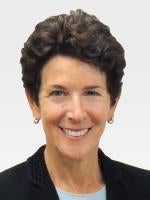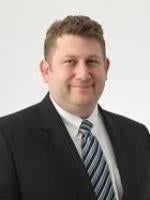Although the New Jersey Supreme Court has not yet adopted the federal Daubert standard regarding the admissibility of expert testimony, New Jersey evidence rules still require trial courts to serve an important gatekeeping function when it comes to the use of expert testimony in trials. Rule 703 of the New Jersey Rules of Evidence provides that an expert may base his or her opinions on facts or data presented to him or her at or before the trial. The corollary to this Rule is that an expert may not offer an opinion at trial unless is it based on some facts or evidence in the record. New Jersey courts have described this as the “net opinion” rule. The rule requires trial courts to exclude expert opinions that have no factual or evidentiary support and are based on nothing other than the expert’s own unsupported conclusions. In Townsend v. Pierre, 2015 N.J. Lexis 273 (N.J. Sup. Ct. Mar. 12, 2015), the New Jersey Supreme Court recently addressed the net opinion rule and clarified that trial courts should exclude expert testimony where the expert’s opinions lack evidentiary support and are contradicted by undisputed facts in the record.
Townsend v. Pierre
Townsend involved a fatal collision between an automobile and a motorcycle. On August 9, 2008, Defendant Pierre, with a passenger in her automobile, approached an intersection controlled by a stop sign intending to make a left hand turn. The property on one of the corners of the intersection was overgrown with shrubbery.
At her deposition, Pierre testified that when she initially stopped at the intersection her view of the traffic was impeded by the overgrown shrubbery. Pierre, however, testified that she edged up to the intersection, starting and stopping four times, before attempting the left turn. After she made her final stop, Pierre testified that her view was no longer impeded by the overgrown shrubbery. After confirming that traffic was clear in both directions, Pierre began to make her left turn. Immediately after entering the intersection, Pierre’s automobile struck Townsend’s motorcycle which resulted in his fatal injuries. Pierre could not explain why she never saw Townsend’s motorcycle. During her deposition, Danielle Kirby, the passenger in Pierre’s vehicle, also testified that when Pierre began to make her turn into the intersection, Pierre’s view of the traffic was no longer impeded by the overgrown shrubbery.
Townsend’s estate brought a wrongful death suit against Pierre and the owner and lessee of the property where the overgrown shrubbery was located. During discovery, Plaintiff offered the opinions of an engineering expert, Nicholas Bellizzi, P.E., with respect to the claims against the property owner and lessee. Bellizzi inspected the accident site, took photographs and measurements of the intersection and shrubbery and reviewed the township codes, police report, deposition transcripts and witness statements in forming his opinions. In his report, Bellizzi opined that the property owner and lessee breached their duty of care by allowing the shrubbery to grow to a point that they impeded visibility from the designated stopping point of the intersection in violation of township codes. Bellizzi further opined that the overgrown shrubbery was a proximate cause of the accident. In reaching this causation opinion, Bellizzi acknowledged that Pierre and Kirby had both testified that Pierre’s view of the intersection was unobstructed when Pierre began to make the turn. Despite this unrefuted deposition testimony, Bellizzi opined that Pierre and Kirby must have been mistaken and that Pierre’s view must have been obstructed by the shrubbery when she began to make the left hand turn because there was no other reason why she would not have noticed Townsend’s motorcycle before entering the intersection.
Prior to trial, the property owner and lessee moved for summary judgment and argued that Bellizzi’s opinion that the overgrown shrubbery was a proximate cause of the accident should be excluded under the net opinion rule because it was not based on any facts or evidence in the record. The trial court agreed and granted the motion finding that Bellizzi’s causation opinion constituted a net opinion because Bellizzi offered no evidentiary support or engineering analysis to support it. Plaintiff appealed the decision to the New Jersey Appellate Division. The appellate court reversed the trial court and held that Bellizzi should be permitted to offer his causation opinion at trial in response to a hypothetical question. The property owner and lessee appealed the decision to the New Jersey Supreme Court which granted certification.
The New Jersey Supreme Court reversed the Appellate Division and reinstated the trial court’s decision granting the defendants’ summary judgment motion on the basis of the net opinion rule. The Court held that an expert’s opinion should be excluded under the net opinion rule if it is “based on unfounded speculation and unquantified possibilities.” The Court further held that “[a] party’s burden of proof on an element of a claim may not be satisfied by an expert opinion that is unsupported by the factual record or by an expert’s speculation that contradicts the record.” In this case, the Court found that Pierre’s and Kirby’s undisputed testimony established that the shrubbery was not obstructing Pierre’s view of the intersection when Pierre began to make her turn. Because Bellizzi did not offer any measurements, photographs or engineering analysis that would support his opinion that the shrubbery actually obstructed Pierre’s view of the intersection when she claimed she began her turn, the Court held that Bellizzi’s causation opinion was an inadmissible net opinion.
Finally, the Court rejected the Appellate Division’s opinion that Plaintiff could avoid the net opinion problems with Bellizzi’s causation opinion by asking hypothetical questions. The Court explained that while New Jersey Rule of Evidence 705 permits the use of hypothetical questions with experts, the rule requires hypothetical questions to be based on “facts admitted or supported by the evidence.” Because Plaintiff did not have any facts or evidence to support a hypothetical question which assumed that the shrubbery was obstructing Pierre’s view, the Court held that the use of a hypothetical question would not satisfy New Jersey Evidence Rule 705.
What Does This Case Mean?
Almost every product liability case involves expert testimony addressing whether the product at issue was defective and whether it was a proximate cause of plaintiff’s injuries. While the net opinion rule has been recognized by the New Jersey courts for several decades, most decisions explaining the contours and application of the rule have emanated from the trial courts and the Appellate Division and have often reached differing results. Townsend represents the New Jersey Supreme Court’s most recent views on the application of the net opinion rule and how it should be applied in cases where an expert attempts to support his or her opinions on speculation and inferences that fly in the face of uncontroverted facts and evidence. Another important takeaway from Townsend is the Court’s decision to grant summary judgment on a proximate causation issue which is typically an issue left to the jury’s discretion. In light of the Court’s decision in Townsend, lower courts may be more willing to use the net opinion rule to exclude experts whose opinions are not supported by sufficient facts or are contradicted by undisputed evidence.
We will continue to keep you apprised of further developments in this area.




 />i
/>i

